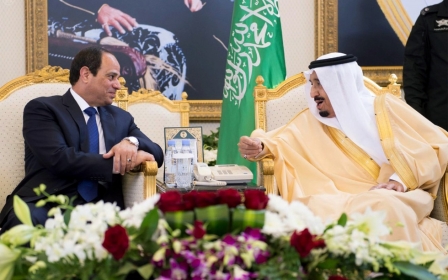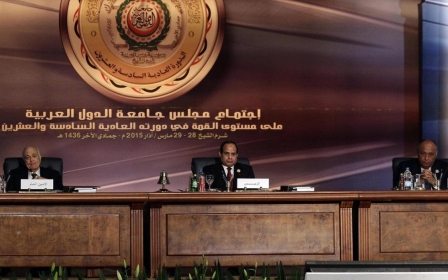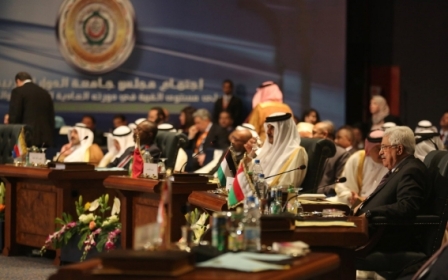Meeting on Arab joint force 'postponed indefinitely'

A planned meeting by the Arab League to discuss the formation of a joint force was postponed for the second time, according to a statement from the 22-member body released on Wednesday.
The meeting, which was scheduled to take place on Thursday, was postponed "indefinitely" till further notice following a request by Saudi Arabia, backed by Qatar, Kuwait, Bahrain, the UAE and Iraq.
The first date set for the meeting was 29 July.
Holding such a meeting was adopted during the Arab summit in Egypt's Sharm el-Shaikh resort in March.
Egyptian President Abdel Fattah al-Sisi announced the accord during the March summit, setting a four-month timeframe for the Arab League to decide on the composition and rules of engagement of the joint force, which according to him would fight "terror" in the region.
But since the announcement, observers had cast doubt on the implementation of such a plan.
"The notion of a truly joint Arab military force still remains an aspiration rather than a reality," Frederic Wehrey, an expert at the Carnegie Endowment for International Peace, told AFP in late March, adding that it faces "political distrust amongst the [member] states".
Wehrey's view was shared by James Dorsey, a Middle East analyst with the Singapore-based S Rajaratnam School of International Studies.
"I don't think there is a lot of substance to this force," Dorsey told AFP. "Despite the statements of unity, there are vast differences between the Arab states," he added.
Up until Wednesday, a number of discussions were held to prepare for Thursday's meeting.
It is not clear what the main reason behind the delay is, but media reports point to disagreements among member states on where to deploy such forces, if at all.
Egypt's Sisi is reportedly pressing to for the formation of the joint force to see the light quickly, so as to toot it nationally as a "success" achieved by his controversial presidency.
One of the rival Libyan governments, based on the east of the country, had already called for using the Arab joint force – once it's formed – to fight militants loyal to the Islamic State (IS).
But although the formation of such a force was meant for "fighting terror" in member states, it remains unlikely that Arab military aid would official enter Libya due to the UN weapons embargo on the North African country.
New MEE newsletter: Jerusalem Dispatch
Sign up to get the latest insights and analysis on Israel-Palestine, alongside Turkey Unpacked and other MEE newsletters
Middle East Eye delivers independent and unrivalled coverage and analysis of the Middle East, North Africa and beyond. To learn more about republishing this content and the associated fees, please fill out this form. More about MEE can be found here.




